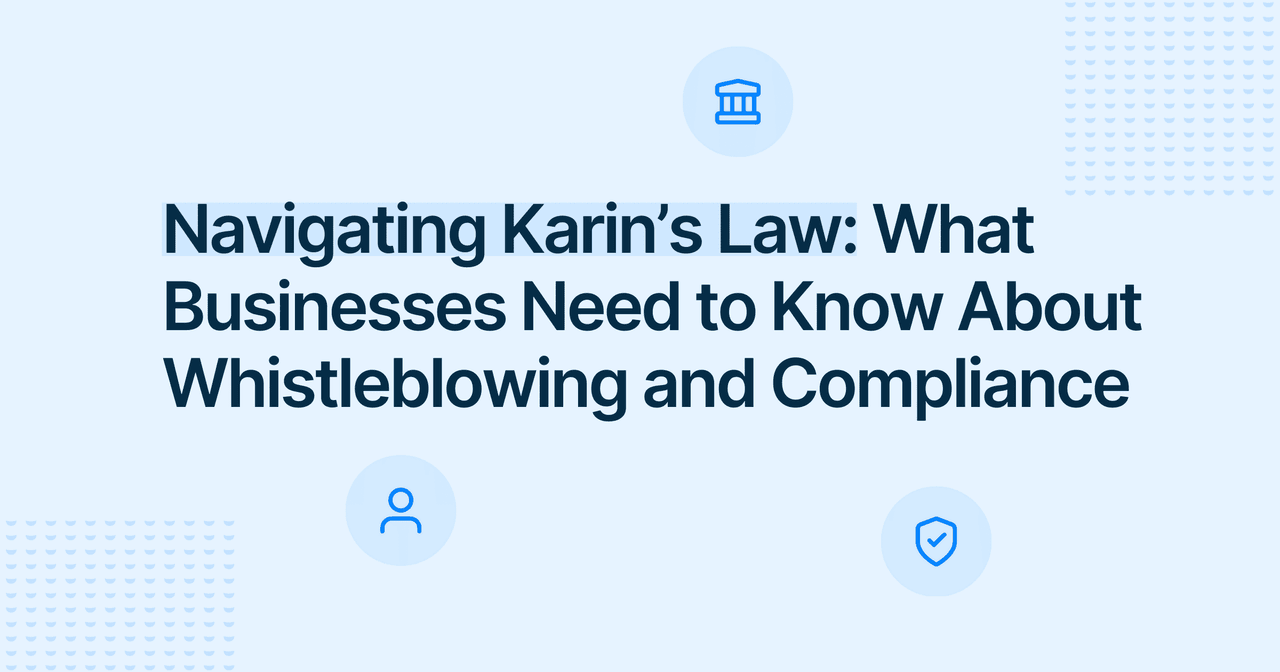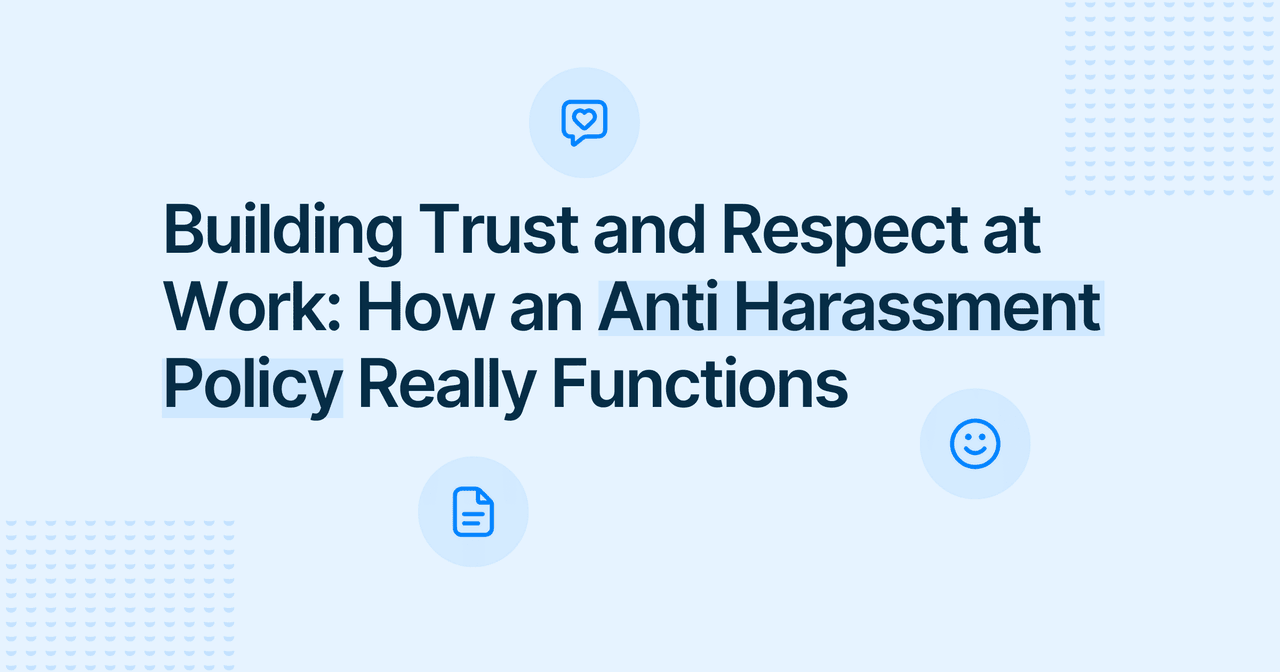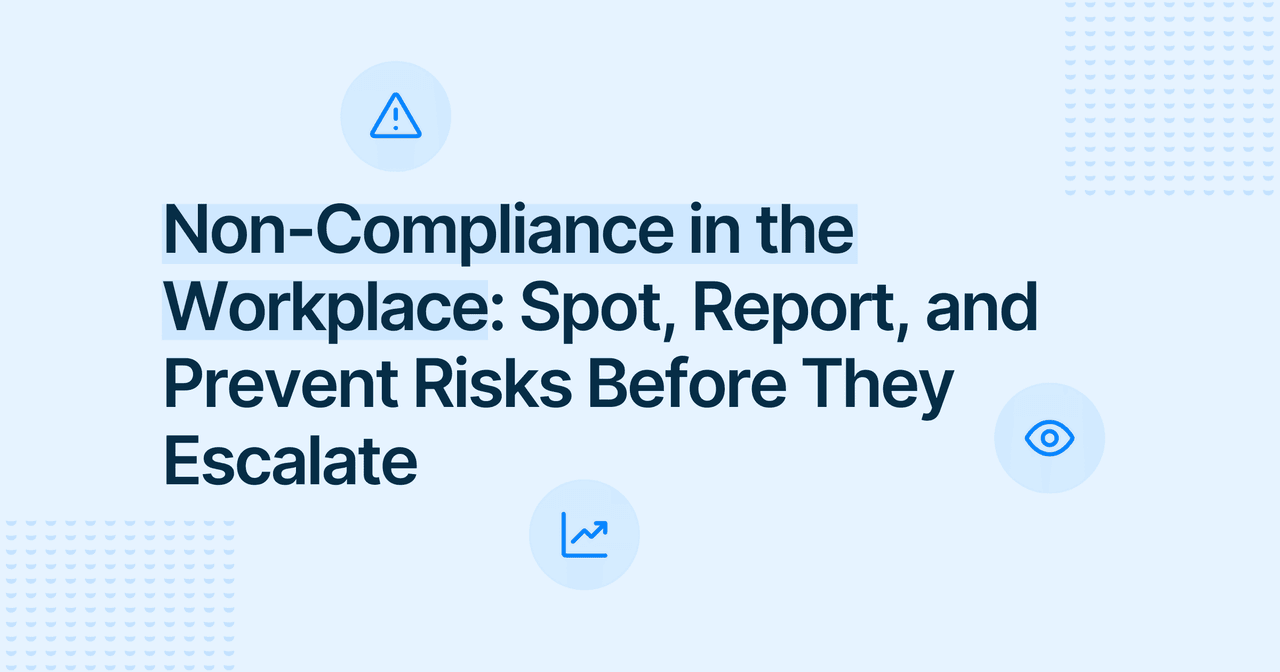How to Report as a Whistleblower: Guide to Safe Reporting
Whistleblowing

Ry Hallada
Content Manager
Published
2024-10-01
Reading time
4 min


Table of contents
Subscribe to our newsletter
If you noticed something unethical was happening at work, would you know how to speak up?
Whistleblowing is essential to maintaining the integrity, ethics, and transparency that make organizations strong. When employees choose to report wrongdoing, they play a critical role in exposing unethical behavior that could otherwise harm others or the organization itself.
However, a bigger question is: How can whistleblowers report safely without facing retaliation or risk?
The answer can be found in secure and anonymous reporting methods. The growing need for such methods is apparent. Employees need to feel safe to share their concerns, knowing they have legal protections and confidentiality safeguards backing them up. That’s why understanding the right way to report is so crucial.
Who is Considered a Whistleblower?
So, who is considered a whistleblower?
- Simply put, a whistleblower is someone who speaks up to report unethical or illegal activities they have witnessed within an organization. Whether it's fraud, corruption, or harassment, these individuals risk their own comfort for the greater good.
But who is considered a whistleblower legally?
- In most jurisdictions, whistleblowers are protected when they report activities that violate laws, regulations, or internal policies. Importantly, what is considered a whistleblower can vary by law, but at the core, it’s about reporting misconduct that could harm the public, other employees, or the organization itself.
Laws like the U.S. Whistleblower Protection Act or the EU Whistleblower Directive define these protections, ensuring whistleblowers are shielded from retaliation when they follow the correct legal channels.
What Can a Whistleblower Report?
Now, let’s talk specifics: what can a whistleblower report?
- The answer is quite broad. Whistleblowers often expose activities such as fraud, sexual harassment, discrimination, and environmental violations. They may also report workplace safety violations, ethical concerns, and public health risks. In short, anything unethical or illegal can—and should—be reported.
But what is a whistleblower report exactly?
- It’s a formal way of bringing these issues to the attention of someone who can take action. For example, a report can highlight harassment within a team or expose a company that’s falsifying environmental compliance documents.
How to Report as a Whistleblower
How to report as a whistleblower depends on the situation's specifics, but the most important thing is to ensure confidentiality from the start.
- Whistleblowers must know that their identity is protected. First, decide how to report a whistleblower complaint. Should you report internally, through HR or Compliance, or externally to a regulatory body? Internal reporting can often resolve issues quickly, but going directly to government agencies may be safer for serious legal violations.
Platforms like FaceUp offer an innovative way to report as a whistleblower securely. Whether it's through anonymous forms, encrypted messages, or hotlines, these systems prioritize the safety of the whistleblower above all.
Where and Who Do Whistleblowers Report To?
You might ask: who should whistleblowers report to?
- The answer varies. Organizations usually have internal whistleblowing channels like HR or Compliance departments. These internal mechanisms aim to resolve issues before they escalate. However, external reporting to government agencies or independent whistleblower platforms becomes vital if the issue is too sensitive or involves leadership.
Where do whistleblowers report if they choose an external route?
- They might report to government watchdogs, regulatory agencies, or independent platforms like FaceUp, which handle reports discreetly and securely. Internal systems are more common, but having external options ensures whistleblowers have a backup when internal channels fail.
How to Report an Employer Anonymously
Many employees are understandably worried about repercussions, wondering: can I anonymously report my employer? The answer is yes. Reporting anonymously is not only possible but often advisable for those fearing retaliation.
- Here’s how to report an employer anonymously: First, use anonymous reporting tools such as FaceUp, which ensure your identity is never revealed. These platforms allow whistleblowers to file complaints without any risk of being traced back. Whether through anonymous online forms or voice messages, confidentiality is the cornerstone of safe reporting.
Whistleblowing is a vital part of maintaining ethical standards in any organization, but it must be done safely. The importance of how to report as a whistleblower cannot be understated—secure and anonymous reporting tools make all the difference. By knowing who to report to, and how to report anonymously, whistleblowers can ensure their voices are heard without fear of retaliation.
If you need a safe way to report misconduct, turn to trusted platforms like FaceUp. With the right tools, you can make a difference while protecting yourself. Speak up for what's right, and know that help is always available.

Ready to protect your organization and empower your employees to speak up? Book a demo today to see how FaceUp can help you build a safer, more transparent workplace.
Keep Reading

Alaa El-Shaarawi2025-12-197 min
Company Ethics Policy: How to Set Standards That Guide Every Decision
Workplace Environment

Marie Roland2025-12-165 min
Navigating Karin’s Law: What Businesses Need to Know About Whistleblowing and Compliance
Whistleblowing

Alaa El-Shaarawi2025-12-087 min
What Is an Ethical Code of Conduct? The System Behind Ethical Behavior in Business & Healthcare
Workplace Environment


